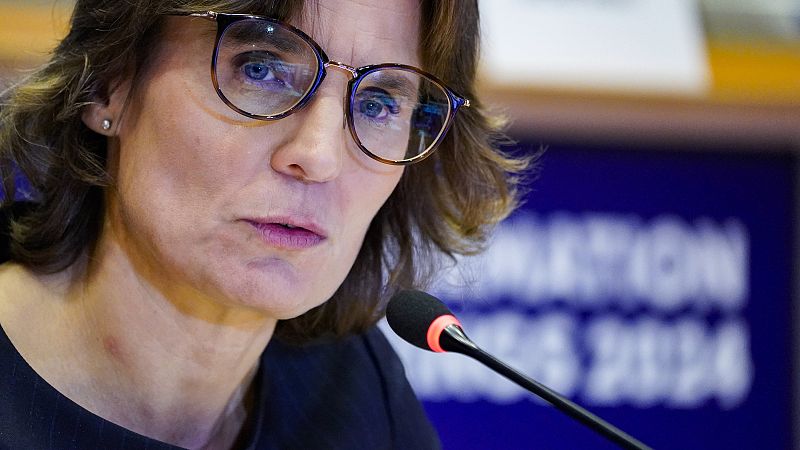New environment commissioner gets the nod after parliamentary stand-off

Swedish conservative Jessika Roswell has cleared the last major hurdle on her route to becoming the EU’s new commissioner for environment, water resilience and circular economy, after receiving sufficient backing from political groups in the European Parliament despite an unconvincing performance in a public hearing.
The news came late Wednesday afternoon (6 November) after the last of three rounds of discussions between coordinators for the various political groups, held behind closed doors in Brussels.
The final round was in parallel with an apparent standoff over the confirmation of the Belgian liberal Hadja Lahbib as commissioner for preparedness, crisis management and equality, sparking accusations of a political quid pro quo.
The centre-right EPP group had vocally endorsed the Swedish commissioner-designate immediately after the hearing on Tuesday night, but with only the hard-right ECR group offering additional support, the decision was postponed until the following day.
In the end, Roswell's appointment was opposed only the far-right Patriots for Europe and Europe of Sovereign Nations, and the Left group at the other end of the political spectrum. Lahbib’s confirmation was announced almost simultaneously.
Roswall said in a social media post that she was “grateful and happy about the broad support from the European Parliament's environment committee”.
Although some expressed doubts about vague answers in the hearing and questioned her resolve in light of her political background, green groups in Brussels reacted in the main positively to her promise to defend a raft of environmental legislation adopted under the outgoing first von der Leyen Commission.
“It is encouraging to see a commitment to stay the course on the European Green Deal, including finalising the Soil Monitoring Law, updating the list of priority water pollutants, and delivering the Water Resilience Strategy as soon as possible,” said Sergiy Moroz, head of water and biodiversity policy at the European Environmental Bureau.
“We also welcome the emphasis on implementing and enforcing existing legislation, such as the Water Framework Directive, Nature Directives, and the Nature Restoration Law,” Moroz added, while cautioning a planned drive to simplify EU environmental and chemicals legislation “must not be used as a pretext to weaken these protections”.
The campaign group Zero Waste Europe was particularly focused on the circular economy side of her Roswall’s new portfolio, voicing concern about her talk of scaling up a European market for secondary raw materials such as recycled plastics. “While vital, this scale-up can’t mean cutting corners on quality and toxic-free standards,” head of policy Aline Maigret told Euronews, also pointing to a lack of commitment to cut waste at source by regulating materials use.
Political group leaders are due to formallty endorse the candidates that pass their committee hearings on 21 November. Providing the process is not derailed by a rejection – and Hungarian Olivér Várhelyi was yesterday asked to submit further written answers after failing to convince last night – the new Commission as a whole will need the green light from MEPs in a full plenary vote at the end of the month if it is to take office in December.
Today

